By Emidio Spogli, in Camillianum – Books of Camillian History and Spirituality – N.15, 1997, pp.61-78
The Church’s actions, in whatever sector and in whatever way they are oriented, are always a pastoral service – a diakonia – modeled on the action of Christ, who came not to be served but to serve. (Cf. Mt 20,28).
The world of health with its vast complexity of social, political, scientific, organizational problems that affect the very existence of man: his birth, his suffering, the freedom of self-determination, his dying, his greatness and his dignity as a person, is, and must be, necessarily a privileged field of pastoral service.
“The Church, born of the mystery of redemption of Christ on the cross, is bound to seek the encounter with man, in a particular way, on the path of his suffering. In this way, “it becomes the way of the Church”, and this is one of the most important ways”.
On this path, She is sent by the Lord to be present in this vital area of human existence to deploy in it all the power of the Gospel message and its effective mediation of Christ’s love for man and particular predilection for the weaker.
Consequently, She is invited to model her presence and her pastoral action on the pastoral activity of Christ, on his diakonia under the guidance of the Spirit, to give exhaustive and definitive answers to the anguishing problems of man, to pain, to his recurring questions in all the seasons of his history.
These lines come from Christ himself in the Synagogue of Nazareth:
“The spirit of the Lord God is upon me, because the Lord has consecrated me with anointing; He has sent me to bring the good news to the poor, to bind the wounds of broken hearts, to proclaim the freedom of slaves, the release of prisoners, to promulgate the year of grace of the Lord ”
Applying to himself the words of Isaiah’s prophecy, Jesus affirms that he was consecrated by the anointing of the Spirit to carry out his mission, which is to be implemented on three orientations:
- To bring to all men, above all to those who feel abandoned and oppressed by injustice, the happy announcement of being loved and protected by God;
- To make all the oppressed feel that God, in his person, has come down beside them to free them from illness, oppression of the powerful, from moral slavery and from everything that opposes their dignity;
- To open before their painful journey horizons of consolation and of hope.
Supported and guided by the substantial outpouring of the Spirit, who in Baptism had consecrated his humanity through which the philanthropy of the Father was offered to men. The diakonia of Christ is diakonia of love, which springs from the Trinity’s communion of love. Jesus communicates to men the power of the eternal love of the Father through his presence and merciful action. All his salvific action, which manifests itself in a particular way towards the most abandoned, is inscribed in this love: “because you loved me before the creation of the world … I have made your name known […] because the love with which you loved me may be in them” (Jn 17,24.26).
Therefore, who gives meaning to human history, and consequently to pain and death, making it historia salutis, is only Jesus Christ, who took upon himself the weaknesses and sufferings of men (Cf. Mt 8:17).
With her pastoral action in the world of health, the Church helps the suffering man to turn to Christ who died and rose again, for a search for meaning. At the same time, the Church directs those who work in this mysterious field of pain, so that, with their pastoral action or with their presence and professional or voluntary activity, they may become a visible sign – sacrament – of the mysterious and ineffable presence of Christ, who promised to his disciples: “Behold, I am with you every day, until the end of the world” (Mt 28.20).









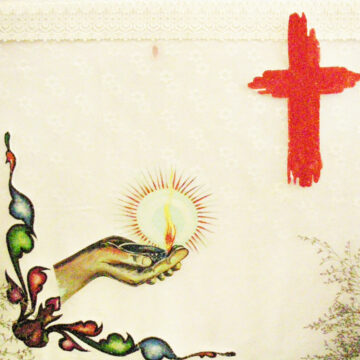
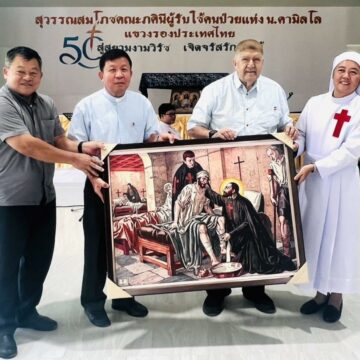
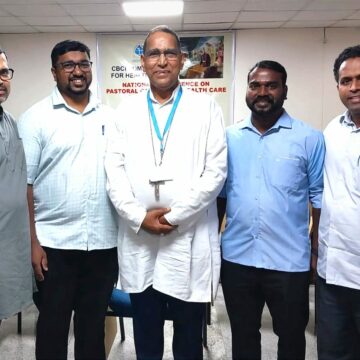
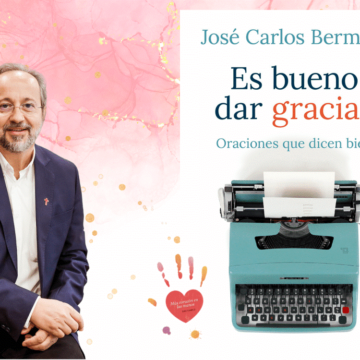

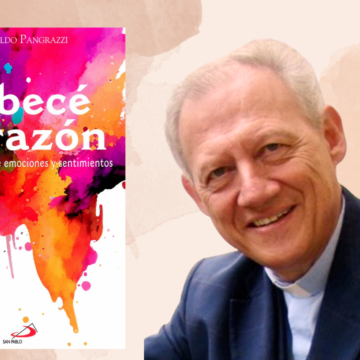
Camillians on Facebook
Camillians on Twitter
Camillians on Instagram